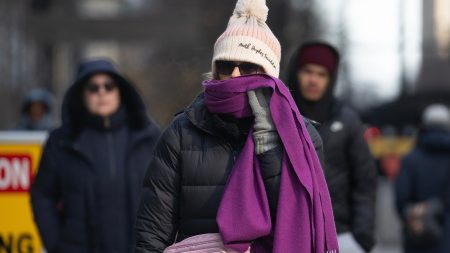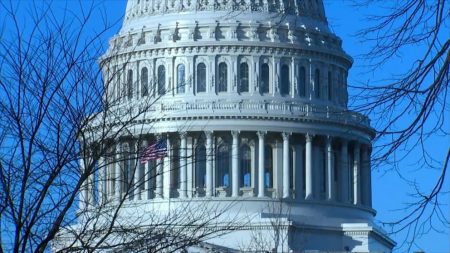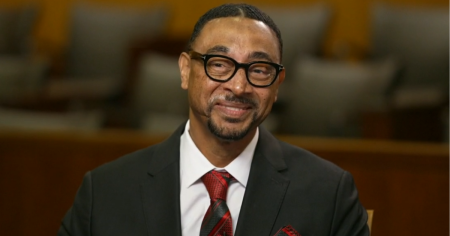The Fight for Abortion Rights: A Story of Resilience and Resistance
A Legacy of Threats and Resilience: Julie Burkhart’s Journey
Julie Burkhart’s journey into abortion care began in 1991 during the infamous Summer of Mercy in Wichita, Kansas. As a college student working at a local clinic, she witnessed firsthand the chaos and violence that defined that period. Thousands of protesters swarmed the city, blocking clinic entrances, confronting patients, and threatening staff. The experience left an indelible mark on her, shaping her decades-long commitment to reproductive rights. Over the years, Burkhart has endured unimaginable challenges: the assassination of her mentor, Dr. George Tiller; death threats; stalking; and even the firebombing of her Wyoming clinic. Yet, she remains steadfast in her resolve to provide abortion care, even as the latest threat to clinic safety emerges under President Trump’s rollback of the Freedom of Access to Clinic Entrances (FACE) Act.
The Erosion of the FACE Act: A Dangerous New Reality
The FACE Act, signed into law by President Bill Clinton in 1994, was a direct response to the violence Burkhart witnessed during the Summer of Mercy. The law protects clinics, patients, and providers from intimidation, obstruction, and violence. However, President Trump has severely undermined this critical safeguard. By limiting enforcement of the FACE Act to only cases involving death, extreme bodily harm, or significant property damage, Trump has effectively gutted its protective measures. His administration has also pardoned 23 individuals convicted under the law, many of whom had harassed patients, broken into clinics, or stolen fetal tissue. Several of those pardoned have openly vowed to resume their anti-abortion activities, emboldening protesters nationwide.
Clinic staff and abortion rights advocates describe Trump’s actions as nothing short of devastating. Melissa Fowler, chief program officer at the National Abortion Federation (NAF), called the move “unprecedented” and warned that it sends a dangerous message: that the federal government will no longer protect abortion providers from harm. “It shouldn’t take someone being murdered for the federal government to enforce a law that makes people safe,” Fowler said, her words echoing the frustration and fear felt by many in the reproductive health field.
The Surge in Violence and Intimidation
Since the Supreme Court overturned Roe v. Wade in 2022, violence against abortion clinics and providers has skyrocketed. According to NAF, the year Roe fell saw a 538% increase in clinic entrance obstructions, a 913% increase in stalking of clinic staff, and a 133% rise in bomb threats. Clinics in states where abortion remains legal are now facing an influx of anti-abortion “tourists” who travel long distances to protest, harass, and intimidate patients and staff.
Calla Hales, co-owner and executive director of A Preferred Women’s Health Center in Charlotte, North Carolina, has seen this surge firsthand. Her clinic, one of the most heavily protested in the state, has experienced an uptick in aggressive behavior since Trump’s announcement. Protesters have attempted to breach clinic property, and Hales recently discovered someone sneaking around the building, photographing the back door. The clinic also received a bomb threat last year, which is now being handled by a state agency after the FBI dropped the investigation—a decision Hales called “a slap in the face.”
The Patchwork of State Protections
While federal protections are eroding, the safety of abortion clinics now largely depends on state and local law enforcement. Clinics in pro-choice states like New York are coordinating with supportive officials to enhance security measures. However, in conservative states like Florida and South Carolina, clinic workers often find themselves at the mercy of hostile authorities. In Greenville, South Carolina, clinic escorts have reported that local police are often sympathetic to anti-abortion protesters, with some officers even acknowledging ties to the protesters.
Winnie, a volunteer with the Orlando clinic escort group Stand With Abortion Now (SWAN), shared a chilling account of a protester who barged into a clinic, screaming that it was “evil” and needed to be stopped. The incident ended without physical harm, but it underscored the precarious reality facing clinic workers. Since Trump’s announcement, SWAN has expanded its training programs, teaching escorts how to deescalate situations, provide emergency medical care, and know when to call the police. Despite these efforts, the lack of federal support has left many feeling vulnerable.
The Biden Administration’s Contrasting Approach
In stark contrast to Trump, the Biden administration has prioritized enforcing the FACE Act. Attorney General Merrick Garland has called the law a critical tool for protecting reproductive rights. However, Trump has criticized Biden for “weaponizing” the law and has vowed to roll it back further if re-elected. Clinic workers are bracing for the worst, knowing that the next phase of the anti-abortion movement could be even more violent and disruptive.
A Commitment to Survival and Resistance
Despite the escalating threats, abortion providers remain resolute. “The reality is that until the ugly, bitter end, we will be here,” Hales said. “We will see patients however we can, adapt and survive for as long as we can.” This determination reflects the broader spirit of resilience within the reproductive rights movement. While the rollback of the FACE Act has dealt a significant blow, clinics are banding together, training their staff, and relying on supportive communities to stay safe.
As the fight for abortion rights continues, one thing is clear: the erosion of federal protections under Trump has left clinics and their staff more vulnerable than ever. But their resolve to provide care, no matter the obstacles, remains unshaken. In the face of adversity, they are finding strength in solidarity, determined to protect both their patients and their right to safe, accessible abortion care.















